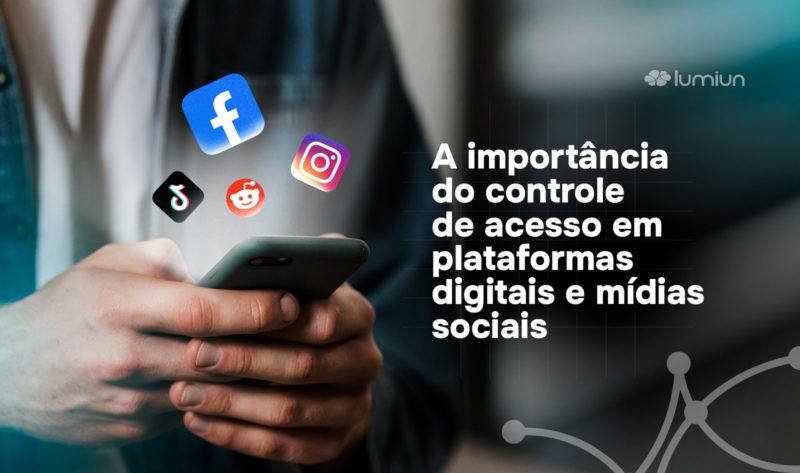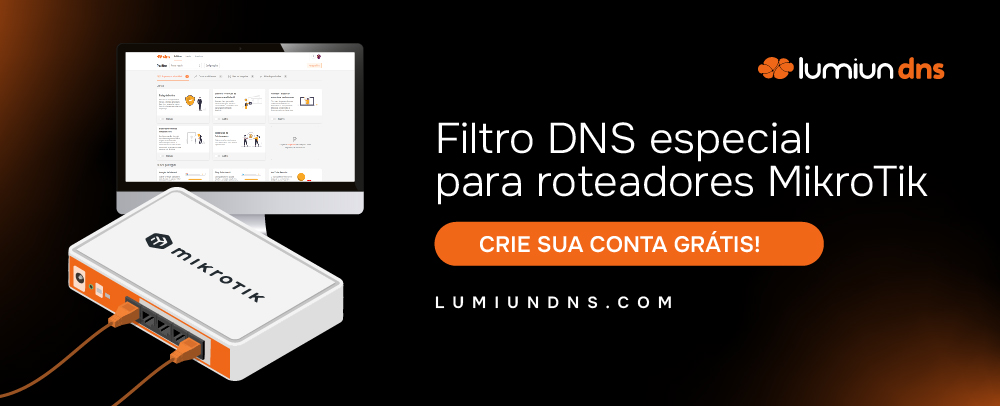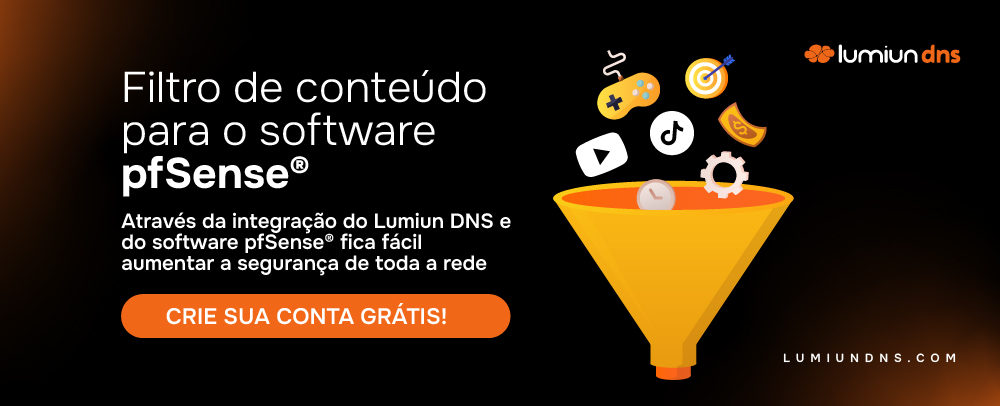Due to the exponential growth of digital platforms and social media , access control has become one of the main challenges of the modern world. According to data from the report produced in partnership by We Are Social and Meltwater in 2024, Brazil had 144.0 million social media users in January 2024, which is equivalent to 66.3% of the population. While Facebook had 111.3 million users in Brazil, Instagram had 134.6 million users. The massive sharing of personal data online demands stricter security policies, such as PNCiber , to guarantee user privacy and the protection of sensitive data.
However, the complexity of the digital environment imposes a huge need to find a balance between security and usability , especially for organizations that need these platforms to maintain their activities. To help you, in this article, we will discuss the importance of access control, the impacts on privacy and mental health, and the technologies that are shaping this scenario .
The impact of social media on mental health and privacy
Social networks are increasingly present in people's lives, impacting mental health and privacy, especially among teenagers. However, in a recent interview, Mark Zuckerberg, CEO of Meta, made a point of rejecting the idea that social networks are directly responsible for harming young people's mental health . “The majority of high-quality research shows that there is no large-scale causal connection between social media use and mental health problems,” he said.
Zuckerberg also recalled his statement to Congress in January, where he argued that studies have so far failed to prove a direct link between the use of social media and mental health problems among teenagers. He admits, however, that platforms can have both negative and positive effects. “The academic research matches what I see on a daily basis about how these platforms work,” he said.
Furthermore, Zuckerberg highlighted the importance of parents in this scenario . For him, parental controls are essential, as each family has a different way of educating their children. Therefore, giving parents the right tools to help manage screen time and the use of platforms is, in his view, one of the pillars for a healthy coexistence with technology.
For Zuckerberg, the real villain in the impact on teenagers' mental health is not so much the apps themselves, but the constant barrage of notifications and distractions. “The ability to receive push notifications and be distracted appears to be a much more relevant factor in mental health problems than many of the apps themselves,” he concluded.
Digital platforms such as Facebook and Instagram have been widely criticized for their privacy practices , especially regarding the use of data for advertising purposes. In this sense, there is a great movement regarding the protection of this information, bringing an intense debate about the use of this information and how it can be protected to keep users safe .
Mark Zuckerberg recognized that balancing a connected experience and a safe, healthy environment is a huge challenge. Regarding this concern, he also highlighted that the company is investing in new tools to help parents better manage their children's time online and provide constant monitoring of potentially harmful interactions. However, these initiatives are still unable to address the scope of the problem, making it necessary to adopt more incisive measures .
Excessive exposure on social media, combined with a lack of control over privacy, can cause serious problems with users' mental health. Constant comparisons and the search for validation through interactions and likes worsen this situation. Thus, overexposure on social networks , according to studies carried out, can lead to feelings of loneliness, inadequacy and depression.
Therefore, it is essential that platforms and governments adopt stricter access control and privacy policies, especially to protect the most vulnerable users. Efficient access control is one of the most effective strategies to ensure that data is not used incorrectly, maintaining ethics and responsibility regarding the use of these platforms.
What is access control and why is it essential in the digital age?
Access control consists of managing and restricting access to information and digital resources, defining which users can interact with each content. This practice, carried out through specific software and tools, is fundamental to maintaining the security and organization of the digital environment.
In the digital age, where all services are interconnected, the risk of data breaches increases substantially. Thus, access control not only protects users against cyberattacks , but also allows for adequacy and compliance with data protection laws, such as the GDPR (General Data Protection Regulation) in Europe and the LGPD (General Data Protection Law) of Data) in Brazil.
When we refer to companies, the lack of access control can cause enormous financial losses and damage to reputation. Security breaches, when exploited, can expose sensitive data, such as banking information, business secrets and personal communications.
Therefore, adopting more robust access control measures is essential to protect digital assets, preserve privacy and prevent cyber threats. Companies need to be aware of this issue to avoid creating vulnerabilities in their system and constantly protect their users.
The growing importance of online privacy
Online privacy has become one of the most debated topics in the digital age, mainly due to the increased use of social networks and data sharing platforms. Privacy is intrinsically related to access control, as, without it, users' personal data is vulnerable to malicious companies and attackers. Thus, data that has been collected by large corporations raises ethical and legal concerns about the use of this information.
In June 2021, there was a data leak of 700 million users of the LinkedIn platform (a number that represents around 92% of its total user base). Hackers have put this information up for sale on forums, including full names, email addresses, phone numbers and professional details. The attack had a major impact on the platform, which had to adopt even more advanced protection features.
The growing concern about online privacy, driven by regulations such as GDPR and LGPD , has required companies to adopt more transparent practices when processing personal data. Thus, new legislation gives more power to users, allowing them to access, correct or delete their data and require consent for its use. In this way, access control becomes essential to ensure companies' compliance with legal standards and to protect users' privacy.
However, there are still challenges that we need to face. Lack of understanding terms and policies leads many users to share their data without knowing the risks. In this sense, we highlight the importance of broader digital education so that people can make more informed choices about the privacy of their data. Therefore, online privacy is a collective responsibility, especially when dealing with employees of an organization. In other words, governments , companies and users must work together to ensure an even more secure and private digital environment.
The risks of inefficient access control
Thus, the absence or failure to implement effective access control mechanisms exposes both users and companies to a series of risks. When exposed, hackers can use sensitive data for fraud, identity theft and corporate espionage, causing financial losses and significant reputational damage.
Companies that do not invest in effective access control risk substantial data breaches , resulting in heavy fines and irreparable damage to their market reputation. Therefore, cases of data leaks , such as Cambridge Analytica , demonstrate how harmful this type of approach can be.
In this case, they misused the information of millions of Facebook users, which had a huge impact on the company. With information from more than 87 million people exposed, Facebook's value shrank by more than 35 billion dollars on the stock market at the time of the incident. Furthermore, this brought the company into the crosshairs of authorities in the United States and the United Kingdom, where CEO Mark Zuckerberg was summoned to testify before a legislative committee.
At the end of 2022, Meta, Facebook's parent company, agreed to pay 725 million dollars to settle a class action lawsuit initiated due to the leak that Cambridge Analytica suffered. Although it made the proposed agreement, Meta did not admit irregularities in its processes.
The Facebook data leak, of unprecedented proportions, had a significant impact on the global political scene. The information collected was used to manipulate public opinion during elections , triggering a wave of protests and undermining users' trust in the platform. This scandal exposed the social network's vulnerabilities and led to substantial changes to Facebook's privacy and security policies. Therefore, implementing a robust access control system is critical to mitigating these risks. Companies and digital platforms need to implement rigorous practices, such as constant monitoring and multi-factor authentication , to ensure that only authorized users can access sensitive data.
How to guarantee safe and controlled access?
To protect information from unauthorized access, it is important to establish efficient access control policies and technologies. Therefore, defining who accesses which data, with authentication and authorization, guarantees security and protects the company and its customers. Multifactor authentication is essential in this process, adding an extra layer of security to all access. In addition to a password, the user must also provide another authentication factor , such as a code via SMS, biometrics or another strategy. This makes access for attackers much more difficult.
Therefore, updating and reviewing the security and access control system are also very important aspects. Digital threats are constantly evolving, and companies need to keep up with these changes to avoid creating points of vulnerability. Regular system audits and monitoring of access activities help identify suspicious behavior, allowing the company to act more quickly.
Furthermore, raising user awareness about information security practices is essential to strengthen data protection. Sharing personal information indiscriminately and using weak passwords are examples of behaviors that can compromise the organization's security. Therefore, it is essential that companies invest in training and education programs to make employees aware of the risks and preventive measures.
Strong authentication: much more than the password
Strong authentication goes far beyond simply creating a complex password to protect an account. Nowadays, the use of weak or repeated passwords on multiple platforms is one of the main reasons for successful cyber attacks. For this reason, it is increasingly important to adopt authentication methods that offer greater security .
One of the most effective ways to establish strong authentication is through the use of multi-factor authentication . This strategy requires the user to provide more than one proof of identity before being able to access their account or applications, requiring a code sent via SMS, email and even biometrics, such as facial recognition or fingerprint.
Biometrics space as a strong authentication solution. Advances in technology have allowed facial and iris recognition to become more accessible, offering a higher and more personalized level of security.
Defining access profiles and permissions
Defining access profiles and permissions is vital to ensure that system information is accessed in a more secure and controlled manner. Each user will only have access to the information necessary for their functions, an approach that is also known as the principle of least privilege .
Implementing this strategy allows the company to minimize the risks of unnecessary data exposure and also prevents the misuse of sensitive information. This means that an employee in the financial sector can have full access to billing information, but will not be able to access human resources data.
Creating access profiles is also a process that facilitates monitoring and carrying out audits , as companies can more easily identify who accessed certain information at specific times. This practice reduces vulnerability to internal attacks, so that a malicious employee or partner will not be able to compromise the system.
Tools and technologies for effective access control
Various tools and technologies can be implemented to ensure more effective access control . Choosing the right tool depends on the organization's needs, but they all aim to protect the system against unauthorized access by ensuring the integrity of the information.
The identity and access management system (IAM) is an essential tool for ensuring information security in organizations. IAM centralizes access control, monitors user activities, generates reports and automates tasks, optimizing information security.
Next-generation firewalls offer an additional layer of protection by blocking unauthorized access to the network. This feature inspects and filters data packets in real time, blocking intrusion attempts before they reach the company's internal systems.
Another very important resource are technologies such as VPN , which are widely used to ensure that data transmitted between users and servers is encrypted , protecting data even when employees are not in the corporate environment.
Content blocking and filtering system
The content blocking and filtering system are important mechanisms for protecting users against unwanted access and harmful information. Companies can use these systems to block access to malicious or inappropriate websites, preventing phishing attacks or malware that compromise the network.
This system is useful in schools and other educational environments, allowing the blocking of inappropriate content, ensuring the safety and well-being of students. It is possible to block content such as pornographic material, violent content, social networks and gambling, to keep users focused on important activities.
It is important to mention that social media platforms are implementing filtering features to combat hate speech, fake news and harmful content. This blocking is carried out with the help of artificial intelligence , which quickly identifies and removes content that violates implemented policies, bringing greater security to users.
Organizations that handle sensitive data can also utilize filtering tools to prevent sensitive information from being inadvertently shared outside of systems. This way, the company will be able to establish greater control over what enters and leaves the network, avoiding leaks and security incidents.
One-click blocking of social networks and messaging platforms
The possibility of blocking social networks and messaging platforms with a simple click has become a growing demand in the country among parents, teachers, companies and employers. In professional and academic environments, unrestricted access to these platforms can compromise user productivity and security.
Parental control tools , such as those that are integrated into operating systems and browsers, allow you to define automatic rules to block the use of social networks at certain times or activities. These solutions help avoid user distraction and prevent them from exposing themselves to harmful interactions in the digital environment.
In the corporate environment, it is necessary for companies to use social media blocking software, such as Lumiun DNS , and other platforms to prevent employees from wasting time on non-work-related activities. Lumiun Lumiun DNS allows personalized blocking of categories, such as social networks, gaming platforms and entertainment sites. Constant communication via messaging applications also compromises the company's security, making it necessary to block this feature as well.
One-click blocking is a very useful feature in emergency situations, where blocking social networks and messaging applications prevents the spread of undue information and allows attention to be focused on an ongoing task or activity. In this way, this powerful tool can help control the use of digital platforms even more effectively.
Privacy Settings and Time Limits
Privacy settings and time limits are two essential aspects of efficient access control, especially when referring to digital platforms. Customizing these privacy settings allows users to control the level of exposure of their information, from the visibility of posts to the sharing of personal data.
On social media, we can adjust who views our posts, who sends us messages and what data we share with third parties. These tools together help maintain a secure and private environment , allowing users to choose what can be shared and with whom.
Establishing time limits for the use of digital platforms, in turn, can be a very effective measure for managing mental health and digital well-being. Platforms like Instagram and TikTok already offer an option to limit daily usage time , preventing excessive and compulsive use.
Companies can also use these settings to limit access time to corporate systems, ensuring that sensitive data is only available during working hours, reducing the risk of intrusions or unauthorized access outside business hours.
The balance between security and usability
One of the biggest challenges of access control on digital platforms is establishing a balance between security and usability . More robust and secure systems tend to require multiple steps for authentication and permissions, which can make the user experience more tiring and complex. It is necessary to find a middle ground to protect data without compromising the fluidity of use and ensuring that platforms are secure and functional.
One of the solutions that is gaining popularity in this regard is simplifying the login process , such as using passwordless authentication . This approach uses methods such as security token and biometric authentication, reducing user difficulties and optimizing data protection.
Education about best security practices is still crucial for users to understand the importance of adopting more robust measures, such as multi-factor authentication . If users recognize the benefits of security layers and the risks of their absence, they are more willing to follow these procedures without affecting the experience.
Considering all these factors, the key to success is to design intuitive and functional systems that guarantee security to protect users' information. Platforms must innovate and adjust their security strategies to ensure the protection of confidential information in the digital environment.
Therefore, the key to success is to design intuitive and functional systems that guarantee security to protect users' information.
The challenges of access control
Access control faces a number of challenges in the digital age. One of the main problems is the increasing complexity of digital systems and networks, which often include diverse users and geographically distributed devices. Managing access to these complex networks without creating vulnerabilities is an arduous and complex task, especially for companies that deal with large volumes of data .
The rapid evolution of cyber threats is another very significant challenge. Hackers and malicious groups are constantly developing new strategies to breach security systems, requiring companies to always stay one step ahead. Keeping access control tools up to date is essential for this reason, but it can be time-consuming and costly for the organization.
Another big challenge is the human factor . Weaknesses, lack of security awareness and sharing of credentials are often the most common mistakes that facilitate cybercriminals' approaches. Even with the implementation of quality tools to block this type of approach, user behavior can compromise security.
Benefits for companies and users on digital platforms
Implementing more efficient access control brings numerous benefits to companies and users. For companies, ensuring system security significantly reduces the risk of data breaches, avoiding financial losses and reputational damage. The trust of customers and partners is also greatly reinforced when a company demonstrates that information security is a priority.
Increased operational efficiency is another great benefit of this process. By defining clear access profiles and permissions, companies better control who accesses what information, preventing data misuse and ensuring regulatory compliance.
For users, access control ensures that information is protected against intruders and other malicious agents. This creates a safer digital environment, where it is possible to interact with platforms without fear of data being exposed or used inappropriately .
With access control measures in place, users can establish greater control over their own digital experiences by setting privacy and security preferences.
Considering all these factors, access control is an important aspect of security and privacy on digital platforms and social networks. With more people and businesses relying on these resources every day, data protection becomes increasingly important.
The implementation of more robust control policies constant education process , are essential measures to face the challenges of the digital age. The balance between security and usability will ensure that businesses and users enjoy a safe, reliable and productive .











